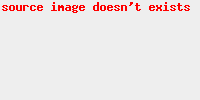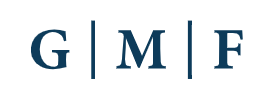
Second international conference “Film and Media Education in Poland and the world – Systemic Solutions and Case Studies” took place in May in University of Warsaw. Conference participant Olena Kutsenko (coordinator of the network of permanent film clubs of media education in human rights Docudays UA in schools, universities, youth NGOs, Euro clubs and libraries of Autonomous Republic of Crimea) shares her impressions of the event with us.
Second international conference “Film and Media Education in Poland and the world – Systemic Solutions and Case Studies” took place in May in University of Warsaw. It was organized by Ministry of Culture and National Heritage of Republic of Poland, PEAM (Audiovisual Film and Media Education Programme), and Polish Film Institute.
Media educators from 18 countries of Europe, Eastern Asia, USA, and Australia presented case studies showcasing the work of their film and media schools, educative film institutions, best practices of introducing film- and media– education to learning process in regular schools. Many participants were particularly interested in topic of development of critical thinking and habits of media literacy through festival movement. This subject was covered by Maciej Nowicki, representative of WATCH DOCS Festival (Warsaw) and Olena Kutsenko, representative of Docudays UA Festival (Kyiv), coordinator of the network of permanent film clubs of media education in human rights Docudays UA in schools, universities, youth NGOs, Euro clubs and libraries of Autonomous Republic of Crimea.
Maciej Nowicki’s presentation highlighted the achievements of Warsaw festival in sphere of human rights education of their viewers and described the events that accompany festival in Warsaw and rest of the Poland. Olena Kutsenko continued presentation and told conference participants how critical thinking is developed and human rights education of pupils, students and grown ups takes place during the events of Traveling Documentary Human Rights Film Festival Docudays UA in Crimea. Olena also introduced the project ‘Campaign for Fundamental Rights in Ukraine through Instruments of the International Human Rights Documentary Festival Docudays UA’. As a part of this project a network of Docudays UA film clubs in Ukraine was created. This network functions in two main spheres: development of human rights literacy by means of film clubs in schools, universities, libraries, NGOs, and in system of penitentiary services – special educational institutions and penal colonies.
Conference participants expressed great interest in handbooks prepared for the film clubs mediatheque. These include electronic manuals for facilitators and collection of movies. Olena left a copy of this collection with the school of audiovisual and media education of University of Warsaw.
“It turned out that such form of education as human rights film clubs is developed only in Czech Republic and partially in Poland. Not surprisingly we have a lot in common, so we learn from each other. But no one else conducts such work in penal colonies, in penitentiary system. Club education exists in other countries, but they usually teach audience how to watch and appreciate films as works of art. At the conference I did not learn much about the work of film clubs (after working for many years in this sphere it is difficult to be surprised by something completely new). But I acquired knowledge about technologies of professional film- and media education. Most importantly, conference participants listened attentively to my story about our work. They were interested in our experience and acknowledged our achievements. This proves that our project is successful. It will be supplemented by new ideas as it moves along. We can see this every day” – tells Olena Kutsenko, sharing her impressions from conference.
After presentation Olena was virtually peppered with questions. Media pedagogues and cinematographers attending the conference were interested to know how films are selected for the film club repertoire, how film club work is organized, how facilitators are prepared, how the film’s discussion is structured, if censorship sometimes take place in club’s work, if there are any topics forbidden for discussion. And of course, participants were interested to hear how knowledge received in film clubs and during festival’s events helps to understand current affairs in Ukraine and Crimea.
“Main task of the festival’s events and film club education in human rights literacy is to provide children, teenagers, and young people with the knowledge about rights that are granted to everyone living in democratic society. After few years of active work we managed to communicate this message to high school and university students. Thus young people do not accept unquestioningly events in Crimea. Combining developed critical thinking and ability to evaluate technologies of manipulation they can adequately process information and are not loosing their common sense” – says Olena.
Text by Olena Kutsenko & Tetyana Mala
All news


